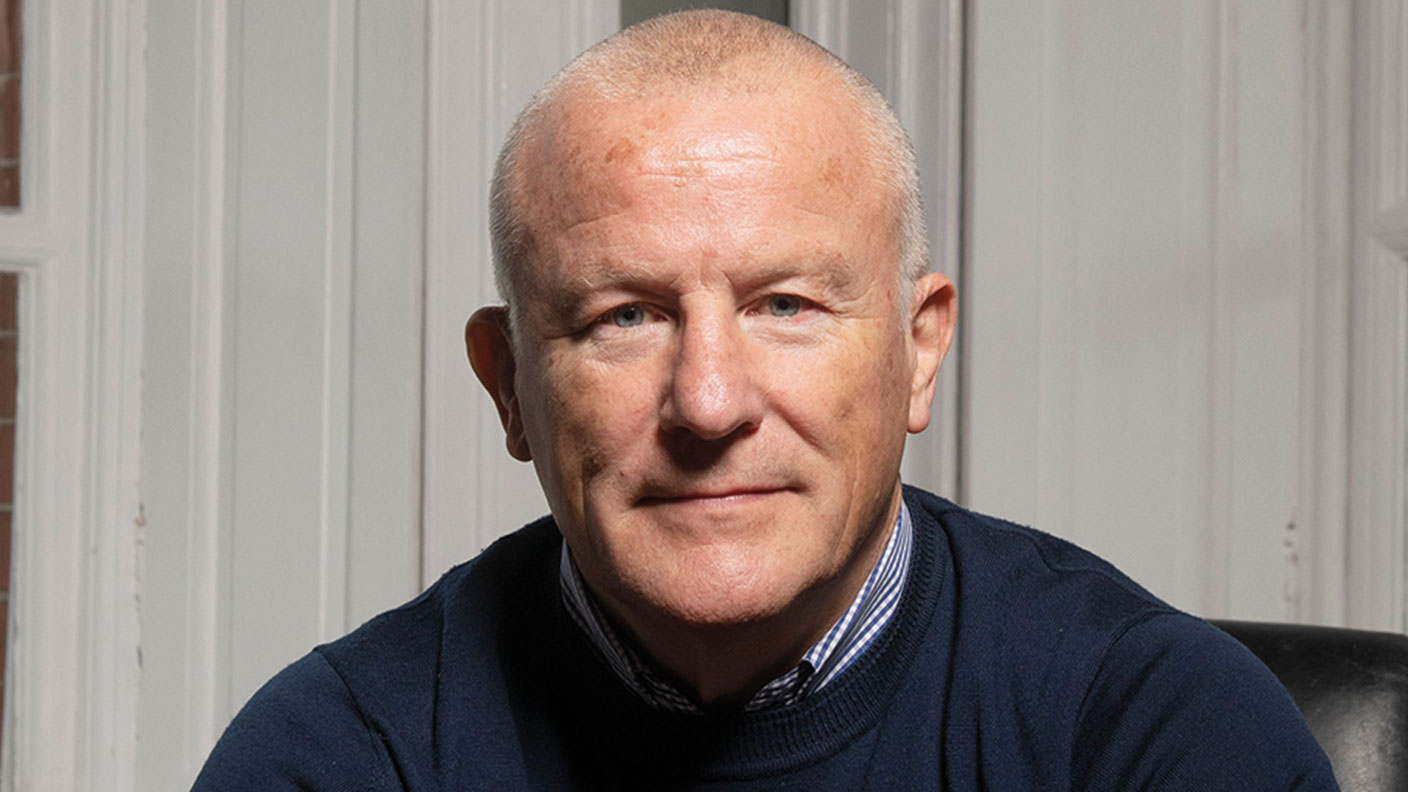How to avoid being hit by a falling star
Three ways to shield your portfolio from the fallout when a celebrity fund manager takes a tumble.

Get the latest financial news, insights and expert analysis from our award-winning MoneyWeek team, to help you understand what really matters when it comes to your finances.
You are now subscribed
Your newsletter sign-up was successful
Want to add more newsletters?

Twice daily
MoneyWeek
Get the latest financial news, insights and expert analysis from our award-winning MoneyWeek team, to help you understand what really matters when it comes to your finances.

Four times a week
Look After My Bills
Sign up to our free money-saving newsletter, filled with the latest news and expert advice to help you find the best tips and deals for managing your bills. Start saving today!

The trouble with celebrity fund managers is that it's always hard to know if they're good or just plain lucky. Active managers who consistently beat the market over time are vanishingly rare, to the point where even those with lengthy records may simply be the equivalent of a lottery winner who imagines that their numerology "skills" have led them to the "right" numbers. Now that Neil Woodford's winning streak has come to an end, here are three tips to help you avoid being struck by fallen stars.
1. Watch for style drift
Woodford made his name taking broadly contrarian bets on big blue chips, with the backing of a large institution to keep him in check. But when he launched his own funds, he decided to dabble in tiny, illiquid companies in exotic areas of the market. It was a major departure and not one that went terribly well, as his followers have learned to their cost. Another well-known British manager Anthony Bolton earned his reputation by taking contrarian bets on struggling UK companies. Similarly to Woodford, he made a fortune for his investors (turning £1,000 invested at launch in 1979 into £147,000 by 2007). But when he came out of retirement in 2010 to try to repeat his success in China, he failed to do so.
2. Don't believe the hype
Once a fund manager has become a celebrity, their name becomes a bankable asset one that can make a lot of money for any company associated with their brand. That means that regardless of the manager's own integrity, the focus will almost inevitably turn to asset gathering, rather than asset nurturing. Bolton's China fund is a classic example it drew a lot of criticism at the time for charging higher-than-average fees for an investment trust, thus capitalising on Bolton's appeal. And there's no doubt that Hargreaves Lansdown in particular benefited from Woodford's celebrity status.
MoneyWeek
Subscribe to MoneyWeek today and get your first six magazine issues absolutely FREE

Sign up to Money Morning
Don't miss the latest investment and personal finances news, market analysis, plus money-saving tips with our free twice-daily newsletter
Don't miss the latest investment and personal finances news, market analysis, plus money-saving tips with our free twice-daily newsletter
3. Times change, so diversify
Even if a fund manager is able to stick to their knitting, and to avoid letting fame go to their head, it's important for investors to remember that times change. Today's big names, such as Nick Train and Terry Smith, have done very well by investing in "quality" stocks big companies with reliable cash flows and strong brands. This has been an excellent strategy and we've long been fans of Train's investment trusts in particular. That said, even good stocks can grow too expensive and at some point this style of investing will fall out of favour. So don't put all your eggs in one basket. Diversify by style, as well as by asset class. And if you can't find a promising active manager, remember that passively tracking the market is both cheaper and more reliable.
I wish I knew what an open-ended fund was, but I'm too embarrassed to ask
Investors in an open-ended fund give a fund manager their money to invest on a collective basis. The term "open-ended" means that new shares can be issued in accordance with demand for them. When an investor wants to put money into the fund, new shares are issued. When they sell, the shares are "redeemed". The buying and selling price of an open-ended fund always reflects the value of the underlying portfolio (minus any costs involved).
One problem with using open-ended funds to invest in illiquid assets such as commercial property, for example is that if investors demand their money back in large numbers, then the fund will be unable to liquidate its holdings rapidly enough to satisfy redemption requests. This is why many commercial property funds had to halt redemptions during the panic that followed Britain's vote to leave the European Union in 2016. It's also the underlying problem behind the "gating" of Neil Woodford's flagship fund.
This is not a pleasant experience for investors who rightly expect to be able to access their money as and when they want to. This is one reason why MoneyWeek prefers to use investment trusts closed-end funds. An investment trust is simply a company whose business is investment. The trust lists on the stock exchange, and then uses the money raised to invest in a portfolio of assets. If an investor wants to invest in the trust, they simply buy the shares from another investor on the open market. As a result, the fund manager is never under pressure to sell out of the underlying portfolio purely to satisfy redemption requests.
This does mean that the share price of an investment trust will often trade at either a discount or a premium to the value of the underlying portfolio. But it also means that you can always get access to your money in a hurry if push comes to shove.
Get the latest financial news, insights and expert analysis from our award-winning MoneyWeek team, to help you understand what really matters when it comes to your finances.

-
 Should you buy an active ETF?
Should you buy an active ETF?ETFs are often mischaracterised as passive products, but they can be a convenient way to add active management to your portfolio
-
 Power up your pension before 5 April – easy ways to save before the tax year end
Power up your pension before 5 April – easy ways to save before the tax year endWith the end of the tax year looming, pension savers currently have a window to review and maximise what’s going into their retirement funds – we look at how
-
 Neil Woodford’s back – but has he really learned anything?
Neil Woodford’s back – but has he really learned anything?Opinion Disgraced fund manager Neil Woodford is planning a comeback. But he doesn’t seem to have learned much from his many mistakes. So why would anyone invest with him now?
-
 Neil Woodford’s back – but sometimes sorry isn’t enough
Neil Woodford’s back – but sometimes sorry isn’t enoughAdvice Neil Woodford’s funds blew up in 2019. Now he is on the comeback trail. But his apologies are unconvincing.
-
 Woodford investor? Your first payment is coming soon
Woodford investor? Your first payment is coming soonNews Private investors left stranded by the collapse of the Woodford Equity Income fund will soon be getting at least some of their money back. But they will have to wait a while longer to see how much more – if any – they will receive.
-
 Neil Woodford continues to cast a shadow over his successor at Invesco
Neil Woodford continues to cast a shadow over his successor at InvescoFeatures Mark Barnett, former star manager Neil Woodford’s successor at Invesco, has applied the same formula, and is struggling.
-
 Is it time to buy Patient Capital Trust?
Is it time to buy Patient Capital Trust?Features Neil Woodford’s Patient Capital Trust has been taken over by asset manager Schroders. The share price has surged - but should you buy in? John Stepek looks at the trust’s prospects.
-
 Neil Woodford: no silver lining for his investors
Neil Woodford: no silver lining for his investorsEditor's letter Neil Woodford made every mistake it is possible to make as a money manager. And his investors have been stiffed. But however wrong it all went, Woodford never stopped taking the fees.
-
 Woodford believed his own hype – now his investors are paying the price
Woodford believed his own hype – now his investors are paying the priceFeatures Neil Woodford was once one of the brightest stars in Britain’s investment firmament. Then he came crashing down to earth. John Stepek explains what went wrong.
-
 Woodford’s empire collapses – what happens to his investors now?
Woodford’s empire collapses – what happens to his investors now?Features With Neil Woodford getting his marching orders and his funds being shut down, John Stepek explains what it means for his former empire, and for those with money locked in.